QuestionMy grandma just gave us her 30 yr. old amazon parrot who has been sticking her tounge out and then like biting it at what looks like an attepmt to itch it, she rubs her beak on the bars all the time like her nose itchs, she sneezes kindda a lot and sometimes picks at her feathers, cant fly or talk, and since we just got her i dont know how normal any of that is? If you could just let me know so i dont worry that would be great. thanks!
AnswerHi, Jess. Thanks for posting your questions.
Often times, a parrot sticks it's tongue out (as if stretching it's neck) if it has something stuck in the back of it's throat or something isn't going down easily, like a piece of food. Parrots rub their beaks on the cage bars all the time in order to clean their beaks off. They will also do this on their perches or anything else in their cage. They also sneeze in order to clear something out of their nostrils. However, not knowing this bird's behavior, all 3 of the above could be related to some type of respiratory problem. I'd ask your grandma for information about her behavior, i.e., is this normal for this parrot. If not, perhaps you need to take her to be seen by an avian veterinarian. If she has any type of discharge from her eyes, nostrils, etc., then she is ill and needs to be taken to a bird vet ASAP. If she is listless, sitting puffed up on her perch (and she is not sleeping), she is ill.
Is she plucking her feathers (pulling them out leaving a bald spot) or just picking at them? Parrots should spend a lot of time each day preening their feathers. When was the last time she had a bath? A parrot's feathers are very important and bathing and preening is part of their "personal hygiene" so to speak. Give her a dish of water to bathe in or if she won't bathe herself, spray her with a plant mister (plastic bottle with a spray on it). She may not like it at first, but then she may love it, too! Use hot water in the bottle...by the time the water reaches the bird, it will only be warm (don't use cold water). Don't allow her to be in a cold draft any time (especially when wet). Hot/warm drafts are OK (but not too much when wet). If the bird is overweight, as amazons are prone to become if eating too much fatty food, she won't be able to fly (too heavy to fly). Then again, some captive birds are content not to fly. Even though all birds have the ability to learn to talk, some do and some don't. However, a lot of parrots don't talk when their humans are around, but talk up a storm when they are gone. Most of my amazons don't talk, but they can learn if I spent the time to teach them. Learning to talk for a parrot is repetition...keep repeating to her what you want her to learn to say. Try 1 syllable, short words at first, that have hard consonant sounds, like "good," "bad," "no," etc. Then go to short phrases, then other words.
I'd talk with your grandma to find out exactly what this parrot's personality/behavior patterns are. Then you'll know when something is wrong when she deviates from these patterns. Of course, you have to give her time to get used to her new environment at your home. If your grandma owned her for 30 years or most of that time, being moved to another location is very stressful on the parrot. Stress can result in the immune system to be less capable of fighting off illness/disease. Be aware of weight loss, changes in her behavior/personality, not eating, etc....these are all signs of illness. Do not hesitate to get the parrot to an avian vet ASAP if you suspect illness, as it doesn't take long (sometimes a matter of hours) for a parrot to go downhill fast, especially at this parrot's age. Although amazons can live to be 50+ years old, it depends on how well they have been taken care of during their lifetime.
Come back if you have additional questions.
Chrys

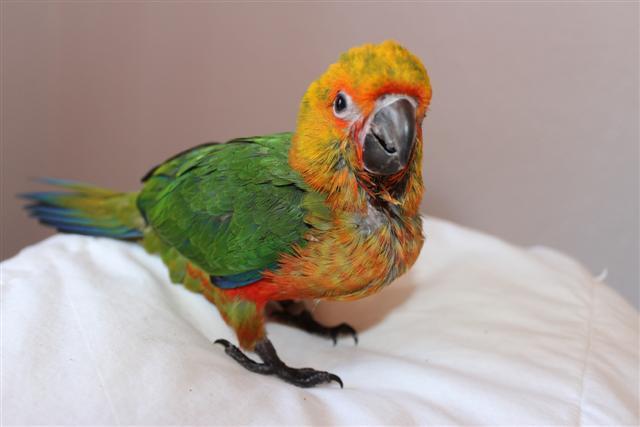 Jenday Conure Weaning?
Question
Castor the Conure
Hi
I have a 9 week o
Jenday Conure Weaning?
Question
Castor the Conure
Hi
I have a 9 week o
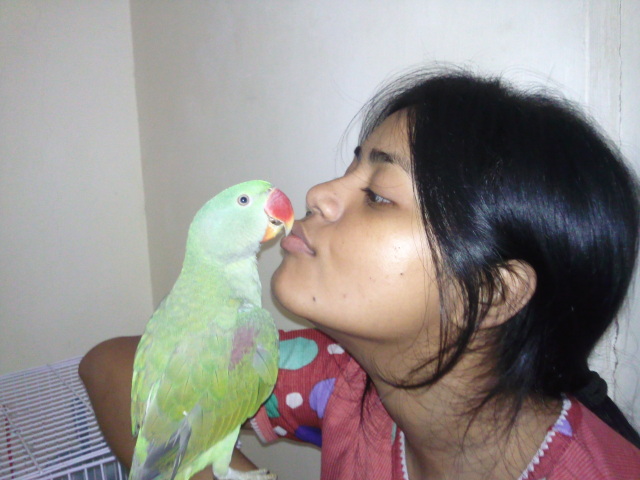 can i give my parrot chole(chana) called in hindi
Question
my little chaddi alexa
dear sir,
can give chan
can i give my parrot chole(chana) called in hindi
Question
my little chaddi alexa
dear sir,
can give chan
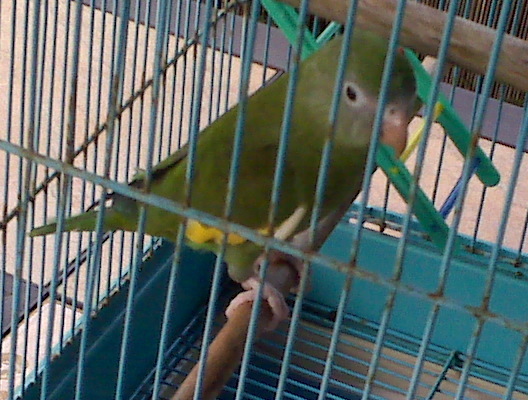 What type of parrot is this?
Question
Friendly bird
A week ago ths small parrot flew
What type of parrot is this?
Question
Friendly bird
A week ago ths small parrot flew
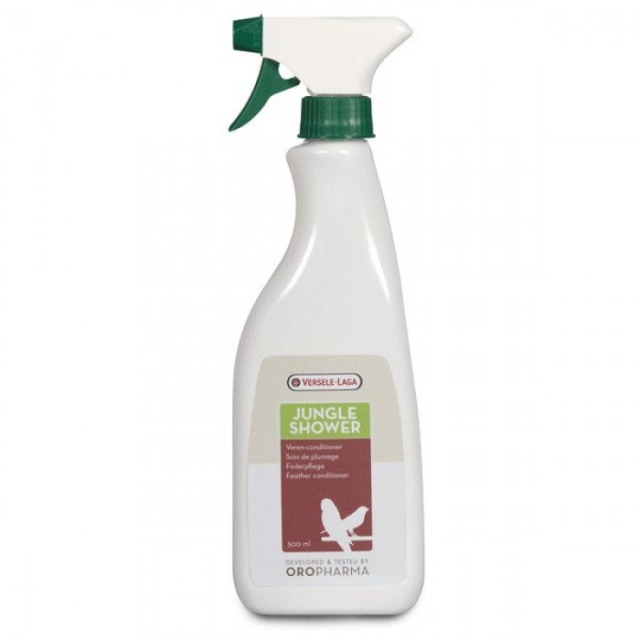 Indian Ringneck Health Issue
QuestionI have an Indian Ringneck who had been neglecte
Indian Ringneck Health Issue
QuestionI have an Indian Ringneck who had been neglecte
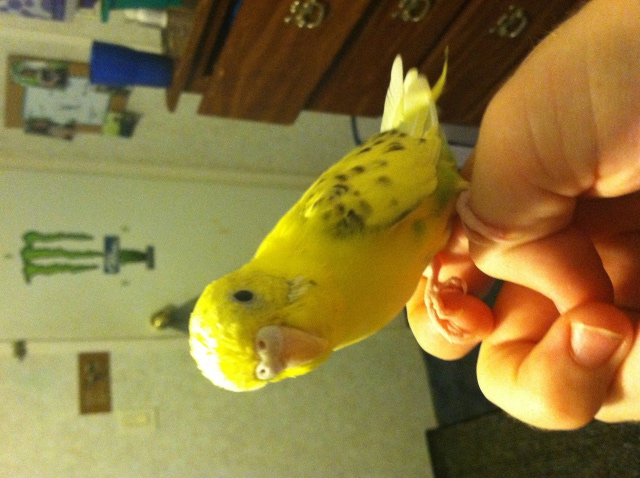 Parakeet gender
Question
Parakeet
Hi, I looked for an expert und
Parakeet gender
Question
Parakeet
Hi, I looked for an expert und